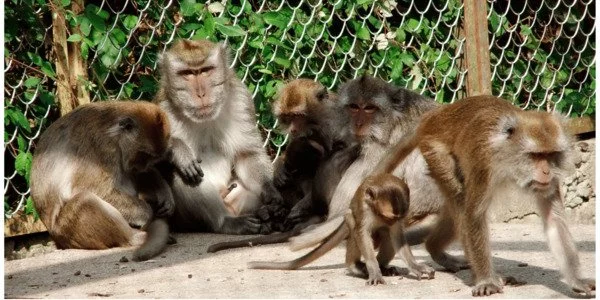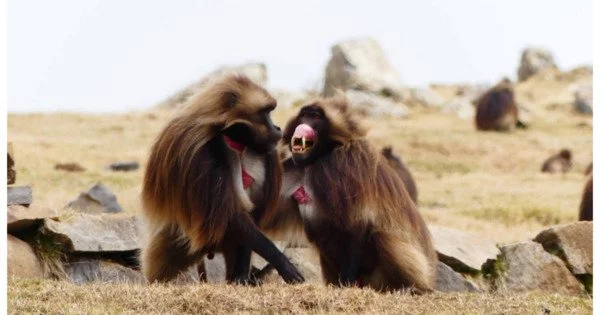The ability to inhibit or delay an immediate behavioral response in order to achieve a long-term goal is referred to as impulse control. It is an important cognitive skill that allows people to control their behavior and make better decisions. While most research on impulse control has focused on humans, there is growing interest in understanding this ability in nonhuman primates as well.
According to a new study of one of humanity’s closest relatives, socially tolerant species are better at controlling their emotions and behaviors. Non-human primates were used to test one of the theories proposed to explain how humanity evolved to become smarter.
The study, led by a team from the University of Portsmouth, discovered a significant link between social organization and cognitive skills in monkeys. They tested three species of macaques with varying levels of social tolerance, from authoritarian to more relaxed societies, in a series of cognitive touchscreen touchscreen tasks to determine how impulsive and reactive they were.
Tonkean macaques, which are known to get along the best with more diverse and complex relationships, demonstrated better overall control of distraction, emotions, and actions than the less-tolerant long-tailed and rhesus species.
This relationship between social tolerance and cognitive abilities could explain why Tonkean macaques are better at managing complex relationships with others. This is significant because it advances our understanding of our own social evolution.
Dr. Louise Loyant
Lead author and Ph.D. researcher, Dr. Louise Loyant from the University of Portsmouth’s Centre of Comparative and Evolutionary Psychology (CCEP), said: “This relationship between social tolerance and cognitive abilities could explain why Tonkean macaques are better at managing complex relationships with others.
“This is significant because it advances our understanding of our own social evolution.” Macaques live in complex communities that are not dissimilar to our own, and they can teach us a lot. Existing research on human inhibitory control, or self-control, indicates that the better a person is at managing their emotions and reactions, the more successful they are likely to be in life, whether in relationships, work, or in general. This hypothesis is supported by our findings.”
The study, which was published in Animal Cognition, also highlighted the impact of environmental factors on self-control abilities. Different risks and environmental pressures may have shaped each species’ behaviors, emotions, and impulsivity levels.

Long-tailed and rhesus macaques exhibited more reactive and cautious behaviors in areas with a higher predatory risk, whereas Tonkean macaques exhibited quieter and less reactive behaviors.
According to the researchers, both social and ecological factors may influence primates’ self-control abilities. “A macaque living in a more competitive environment would benefit from learning how to contain inappropriate behaviors, such as feeding or mating, if they’re around others higher up in the social pyramid,” said senior co-author Dr. Marine Joly of the CCEP.
“But there’s also the hypothesis that our closest primate species have evolved over time to have increased brain size and higher cognitive performances, including better self-control. Our findings support both of these potential explanations, as well as suggest that species living in more complex societies might have better socio-cognitive skills too, including perception, attention, memory, and action planning.”
The researchers assessed the performance of 66 macaques from two institutions: the Medical Research Council Centre for Macaques in the United Kingdom and the University of Strasbourg’s Centre of Primatology in France.
While the study provides valuable insights, the researchers acknowledge some limitations, such as the small sample size and the species’ prior cognitive testing experiences. They recommend more research with a larger number of macaques, as well as a more in-depth examination of an individual’s reactions and outcomes.
















